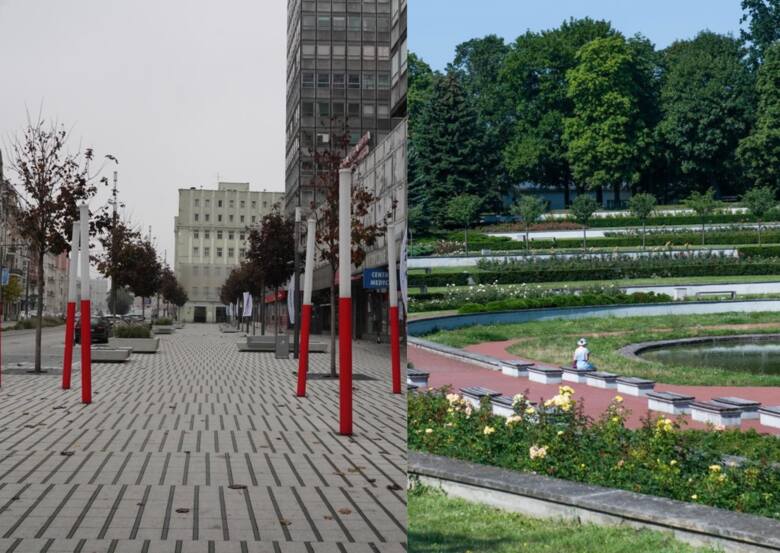Emilia Bromber
In the zeal of concrete pouring and the arrangement of nature, human needs and adaptation to changing climatic conditions have lost their way. You can’t make money on green spaces and parks, but only they can protect the city from increasing climate change. Interview with Dr. Bogdan Shojniki, a climatologist from the University of Life Sciences in Poznan.
Can the recent Poznan floods be blamed on concrete?
Concrete has a bad meaning, but remember that we make surfaces with concrete so that we can travel and walk comfortably. People want flat, useful surfaces. In addition, there are people with reduced mobility and especially need such spaces. On the other hand, in case of heavy rain and heat, it becomes complicated. It is necessary to search for solutions that reconcile these two seemingly contradictory needs.

What are these solutions?
First, moderation. Concrete pouring is a classic symptom of human stress. We want to arrange everything to suit us. If we are already formulating something, let’s focus on the calling functions, let’s not specify everything. Nature helps us with this. Unfortunately, in the frenzy of organizing, we are removing everything rather than modifying what is already there. First, we destroy trees because they do not conform to the aesthetic concept, then we plant new trees and wait 100 years for them to grow properly. Let us surrender to nature, and it will solve many questions for us.
After June, the talk is getting louder about the concept of city sponges. What does this term mean?
The idea of the Sponge City is to create places where water can be held temporarily, reducing the effects of heavy rains and droughts. These can be lawns, storage tanks or rain gardens. Let’s not treat water as an intruder that needs to be disposed of, but rather use it. We also have wetlands in Poznan. We often think of it as a problem, a natural sponge that captures water and then releases it. We should focus on this, because the water evaporated by plants improves the quality of the microclimate and goes into the atmosphere, where it can fall elsewhere. Water drained from the sewage system cannot be used for rainwater. If the city had acted like a sponge, the recent downpour would not have caused such painful damage. We’ll also have water for later.
Seems like a solution to our problems. However, no other parks or green areas have been established today. On the other hand, real estate is crammed into every free space. You cannot make money on green spaces.
This has a good economic effect in the short term and makes life difficult in the long run. Everything is strictly subject to economic calculus, in order to extract a maximum of square meters from the surface. People end up buying new housing a few years after they start discovering that this place is not suitable for living. These places are problematic in two respects, because in hot weather there is no green cooling, and in the case of heavy rains, there is no retention. Under such economic zeal, human needs and changing climatic conditions are forgotten.
We feel the climate change every day. Heat and torrential torrents cause more and more damage. What’s Next?
Climate change means that as the temperature rises, especially in the summer, we must take into account that drought will become more severe, and then torrential rains. Extreme weather events will occur more often and with increasing intensity. If we keep getting rid of the water, the water will soon run out. We have to adapt to new conditions. So, it’s no longer about introducing the concept of a sponge city, but how quickly we can do it so that we can work at all.
—————————
Interested in this article? Looking for more of this type of content? Want to read more articles from the latest issue of Głos Wielkopolski Plus?
Go to: Latest articles on the Głos Wielkopolski Plus . website
You will find articles from Poznan and Greater Poland, as well as from Poland and the world, as well as journal texts.
You’ll also read interviews with people from politics, culture, sports, columns and reports.
If you want to read this article, please purchase access.







